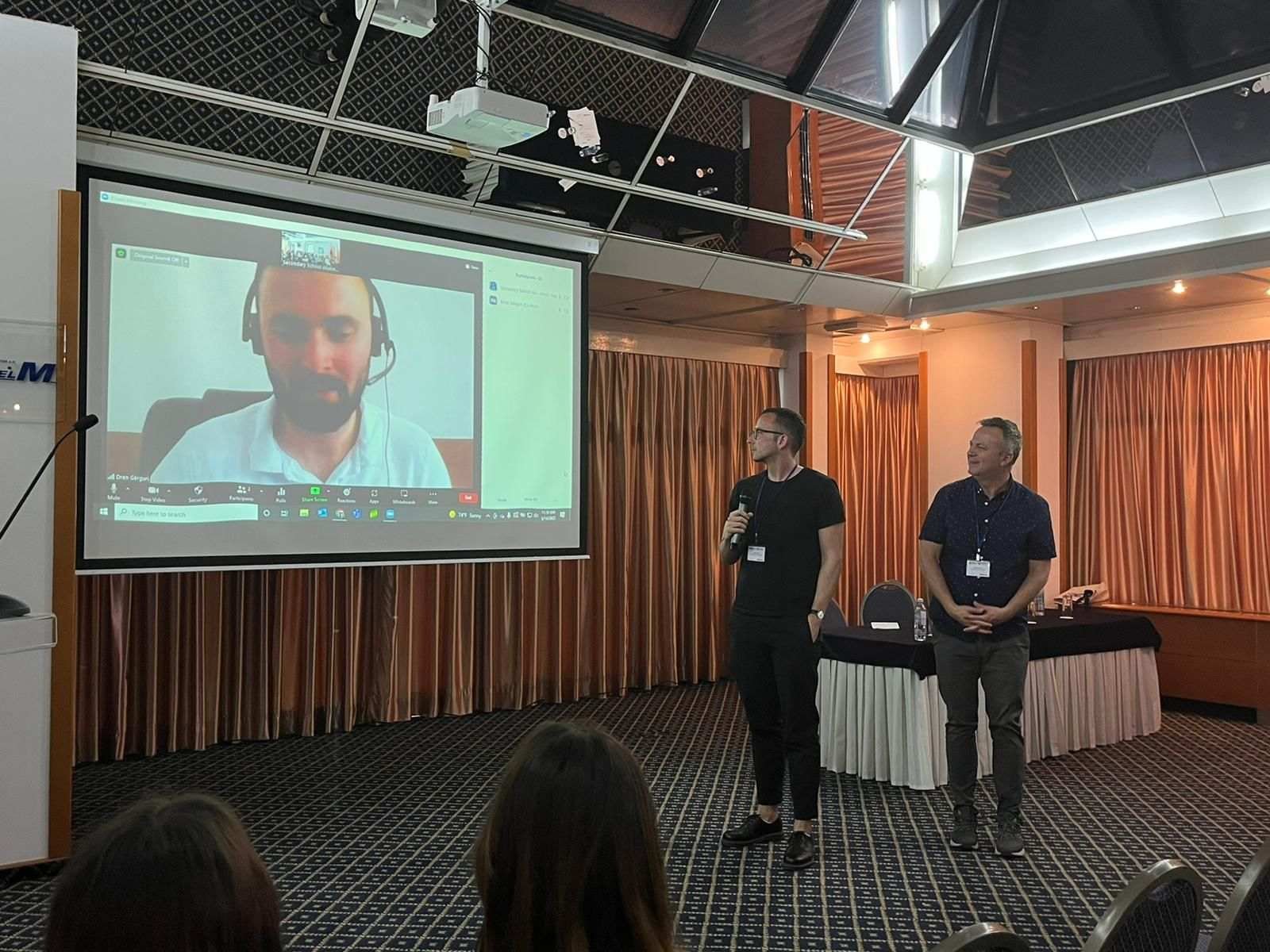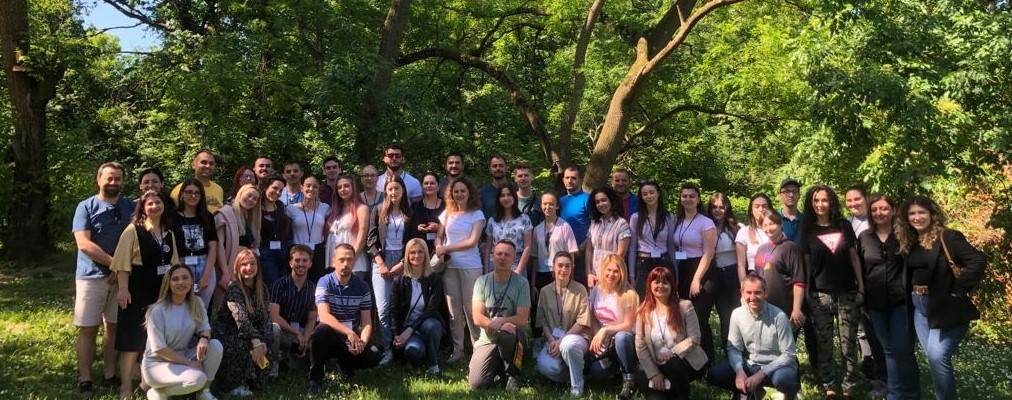One of the goals stated in the Thessaloniki agenda for the Western Balkans is “Promoting reconciliation through education, social development and culture”. The agenda points out that the “EU places high priority in initiatives and activities aiming at reconciling for the future, through overcoming legacies of the past, which are obstacles to normalization and democratic development. In this respect, the role of education, social development, and culture are essential in changing mentalities, promoting tolerance, ensuring ethnic and religious coexistence, and shaping modern democratic societies.” Cooperation in the field of education among the six WB countries and establishing links between students and educators from different WB countries is thus greatly valued.
American Councils for International Education is an international nonprofit creating educational opportunities through academic exchanges, overseas language immersion, data-driven research, and educational development programs. Its mission is to strengthen international ties and mutual understanding through excellence in academic, professional, and cultural exchange, language acquisition, educational development, and research, and its vision is to empower individuals and institutions to address challenges in a diverse and interconnected world. To that end, American Councils designs and administers innovative programs that broaden individual perspectives, increase knowledge, and deepen understanding. Since 1974, American Councils has been operating in over 80 countries, covering 40 different languages. At the start of the 21st century, American Councils started opening offices in WB countries, first in Montenegro and Serbia in 2002, then in Albania, Bosnia, and Herzegovina, and North Macedonia in 2003, and finally Kosovo in 2005.
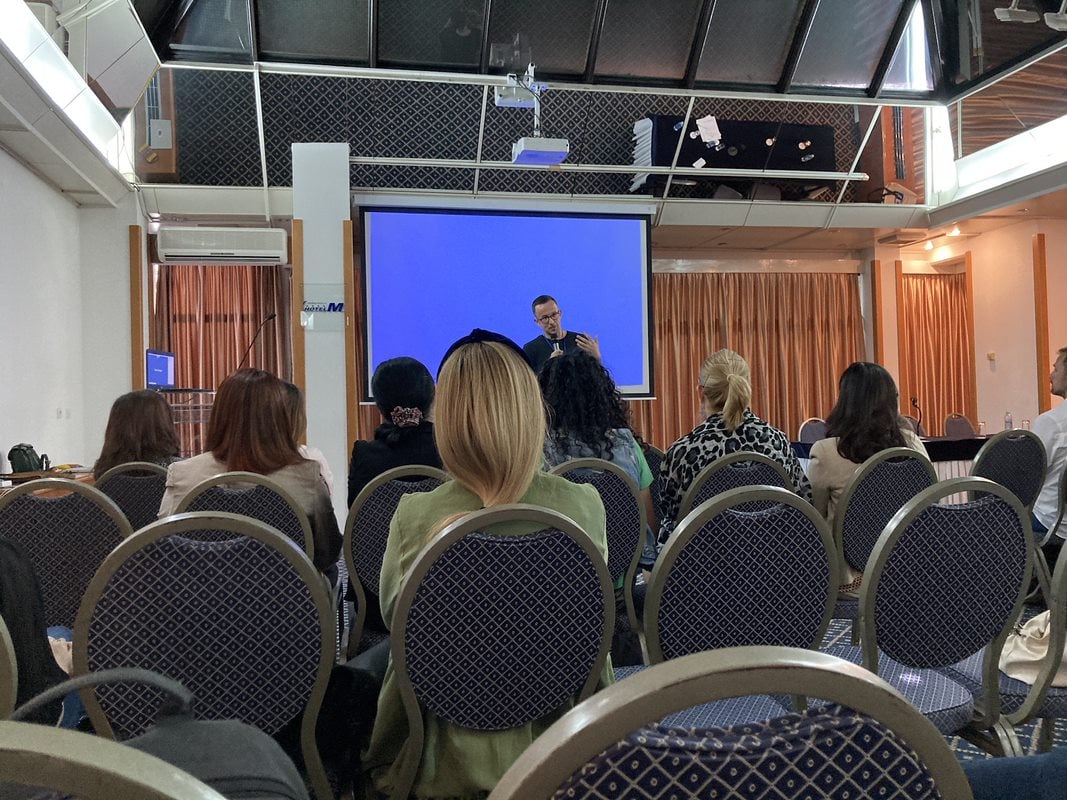
In October 2020, the six WB American councils joined forces and launched the Media Education Exchange Talks (MEET) Western Balkans program, to strengthen the demand for objective, fact-based, reliable information in local communities, by promoting media and digital literacy and increasing educational and cultural exchange among the six countries. MEET started initially as a pilot media literacy-themed exchange between high school students and teachers from Serbia and Kosovo - sponsored by the U.S. Embassy in Belgrade (October 2020-May 2021), and then grew into the regional edition of the program, MEET Western Balkans (November 2021-June 2022), which gained funding from the Balkan Trust for Democracy and the Norwegian Ministry of Foreign Affairs.
The goal of the MEET project is to bring together high school teachers and university and high school students to disclose and prevent disinformation, falsified information, and propaganda - through examination of news discourse, media agendas, infotainment phenomena, public/private interests in media, film, music, and more. MEET is designed to create a network of teachers and students across the Western Balkans as a basis for future multilateral societal collaboration toward media freedom.
In the first phase of the MEET project, the thirty selected teachers for the MEET project were divided into five groups of six teachers and tasked with designing lesson plans regarding media literacy which will be presented/taught to the university students.
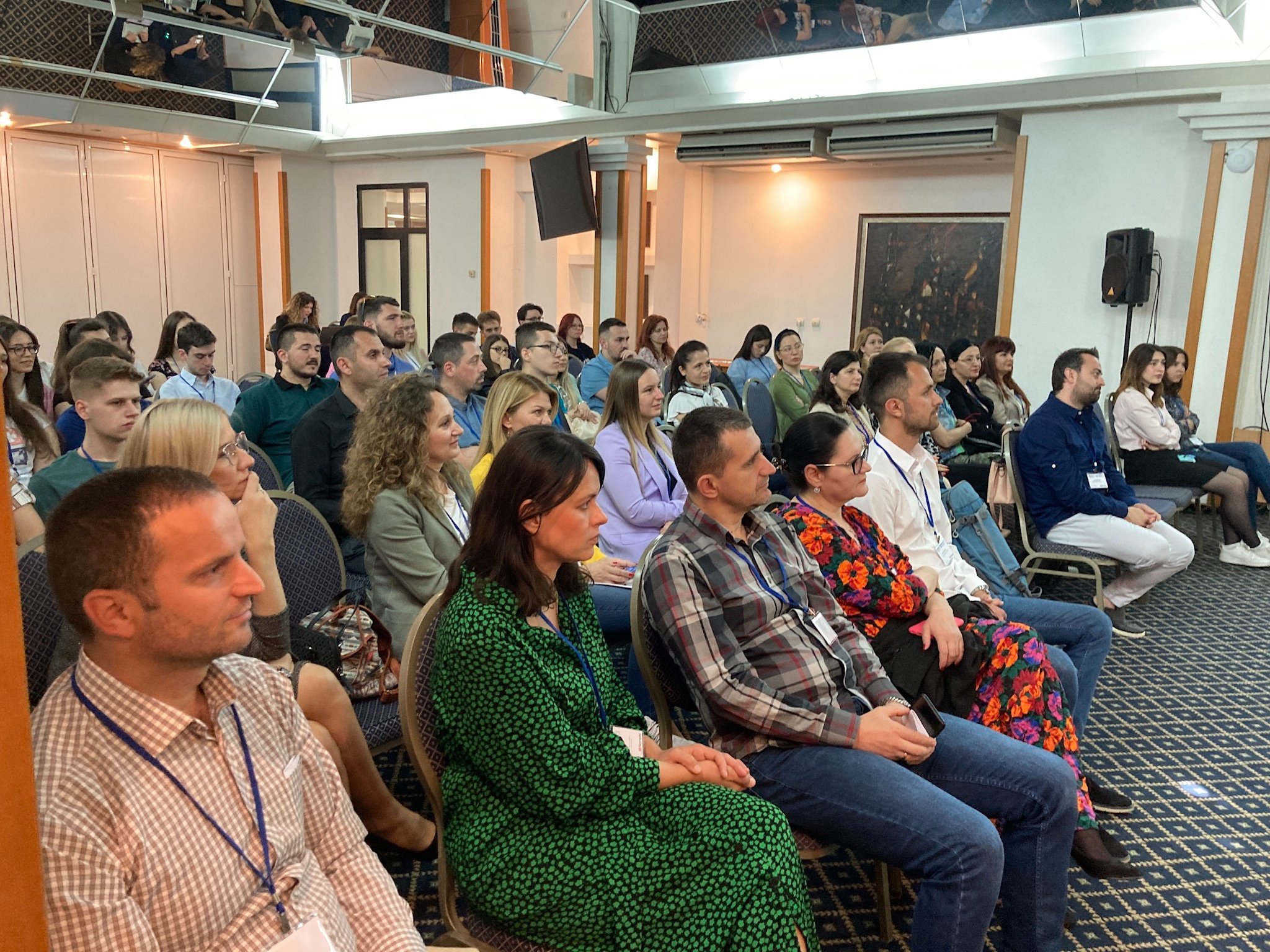
One of the teachers, Jelena Petrović, commented: “Media Literacy Education is a necessity for youth and adults alike, regardless of the country of residence. We are witnesses to a great shift towards an online existence, especially in light of the Covid-19 pandemic. Understanding the power (social) media has over our lives is a crucial 21st-century skill.” Her colleague, Ergin Gashi, added: “Media education is an ideal tool for youngsters to fight injustice and be an important voice in the developing Western Balkans, a region striving to join the European family.”
The teachers had three meetings in the format of plenary sessions with a media literacy expert, during which they had the opportunity to receive feedback regarding the preparation of lesson plans. In addition to the plenary sessions, the teachers held at least three meetings in their respective groups, to design the final version of the lesson plans. The last plenary session was held on December 15, 2021, where teachers presented the final versions of the lesson plans. The topics that were prepared were: Fact-Checking Online; Social media and well-being; Sensationalism; Mis/Disinformation and Digital footprint.
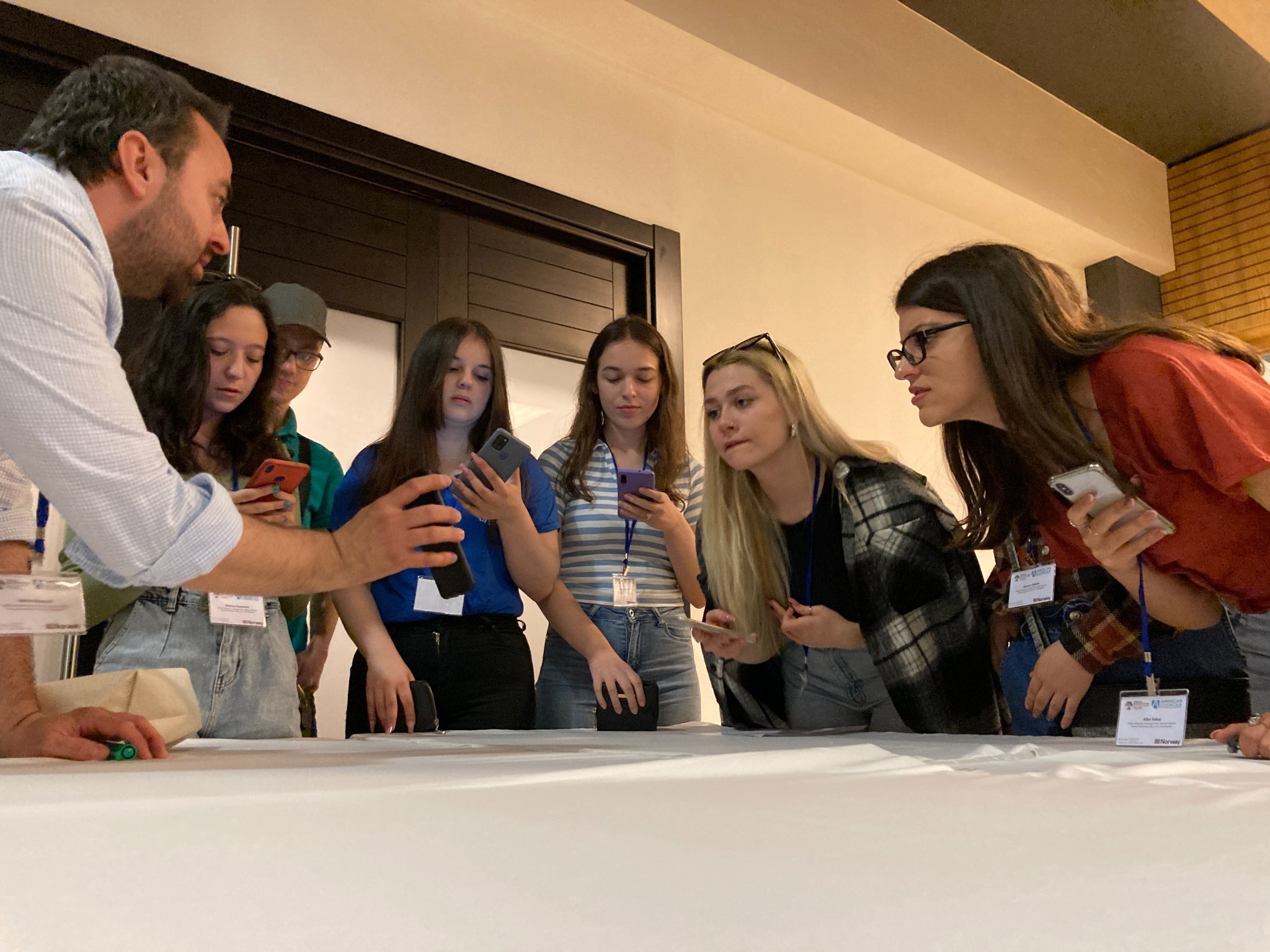
In the second phase of the project, American Councils facilitated a Training of Trainers (ToT), during which high school teachers trained 30 university students from the Western Balkans region. In the words of Una Vukotic, one of the trainees at ToT and a political science student from Montenegro: „MEET project is a great example of regional cooperation to empower youth to think critically, defy manipulation, and have a better understanding of the media. It’s my privilege to help high schoolers from the Western Balkans improve their media literacy skills.”
Throughout the month of April 2022, a total of 181 high school students participated in online training held by university students – peer educators. Out of 136 students who participated in post-training surveys, 56 students “strongly agreed” that the MEET program has had an impact on increasing media competence and critically pondering media content, while 74 selected the “agree” option.
The project ended with a conference held in person in Belgrade on May 15-17, 2022, with 52 participants who shared their experience of participating in the project, discussed the ways how to use their knowledge in their professional or academic lives, and worked on finalizing training materials created during the project. The conference participants had the opportunity to hear what it takes to combat fake news and misinformation in everyday life in the media through lectures delivered by Milan Vukelić, a journalist from Belgrade, and Dren Gërguri, a scholar from Prishtina. The conference also served to strengthen networking and establish stronger personal ties. One of the project participants wrote in their evaluation note: “It was an additional experience that helped me develop personally and professionally. It was a fantastic collaboration between teachers, university students, and high school students, and was well-organized. Thank you very much for this experience!”.
